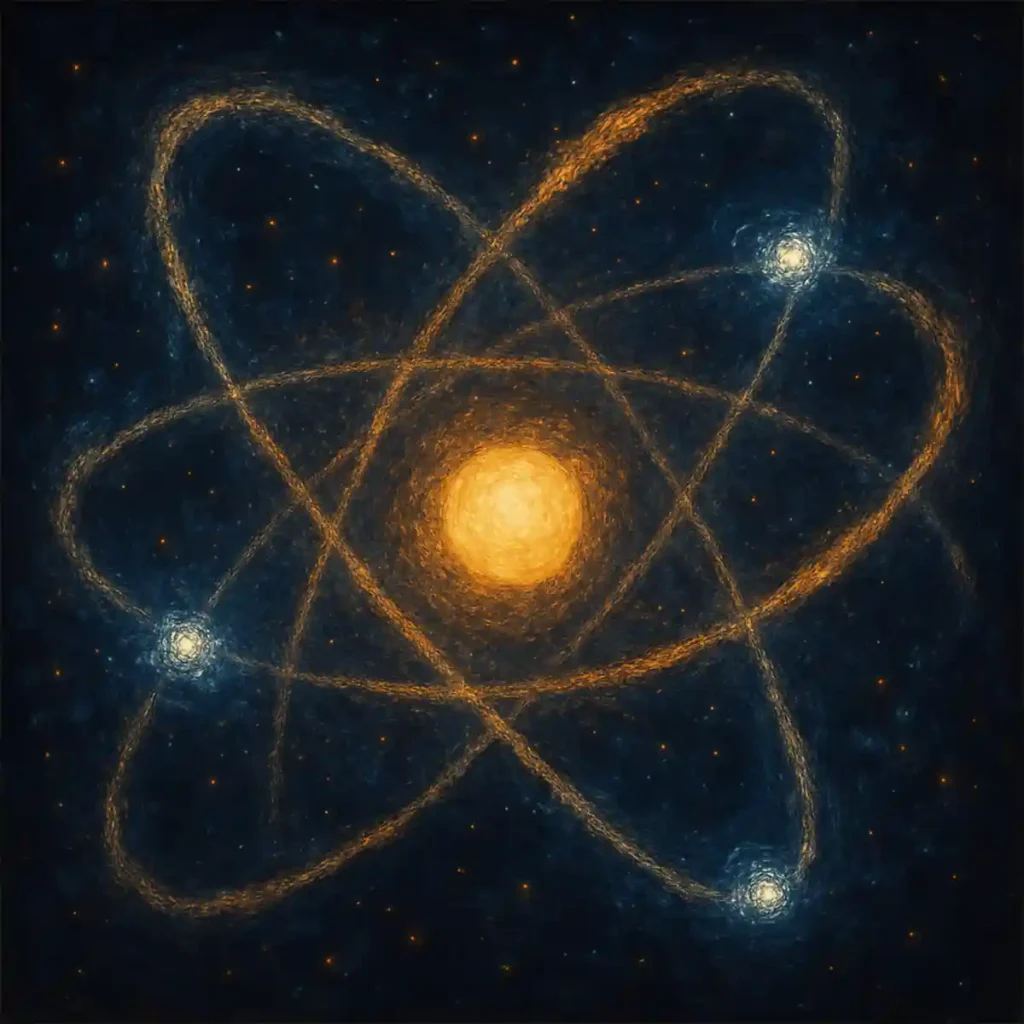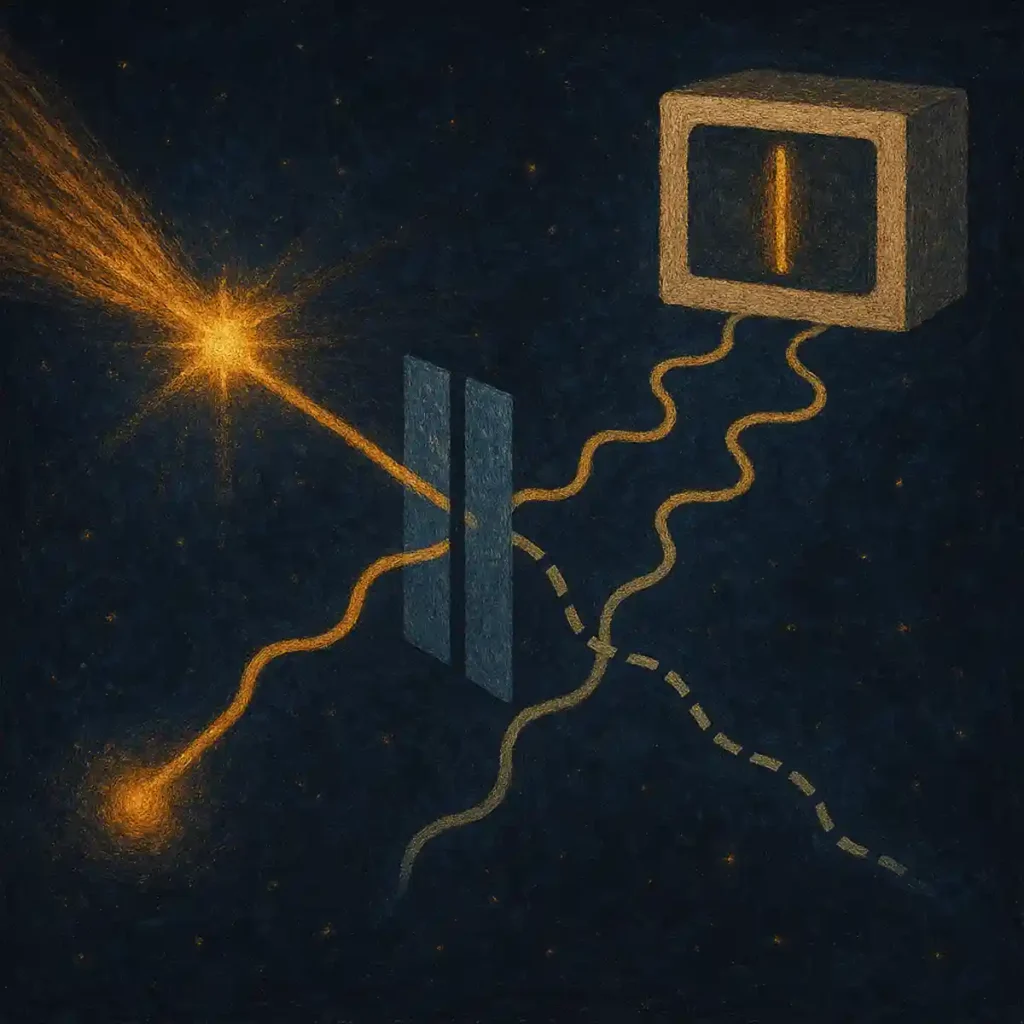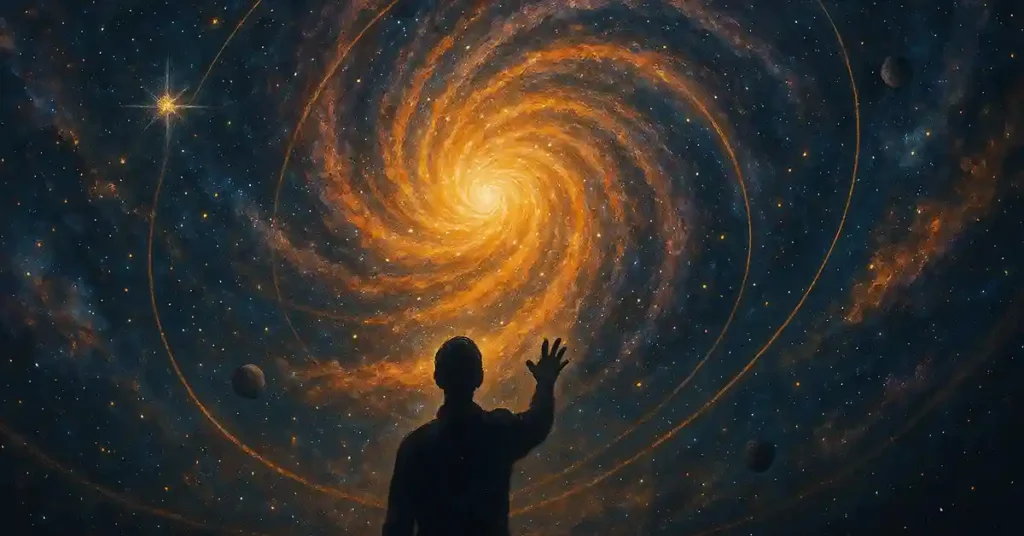Have you ever stared up at the night sky, wondering whether your thoughts, perceptions, or consciousness could influence the very fabric of reality? If so, you’re dipping your toes into a fascinating and somewhat mind-boggling concept called the participatory universe theory. But what exactly is this theory, and why does it sound like something straight out of a sci-fi novel (like, perhaps, The Silent Guardian)?
As a sci-fi author, I’m always intrigued by theories that blur the line between reality and imagination. So, let’s dive deep together to uncover precisely what is the participatory universe theory, how it relates to quantum physics, and why some scientists believe consciousness could have an active role in shaping our universe.
What is the Participatory Universe Theory, Exactly?
At its core, the participatory universe theory suggests that observers—meaning you, me, and any conscious being—actively participate in creating reality simply by observing it. Sounds wild, right? Yet, this idea isn’t as far-fetched as it may seem. In fact, it’s rooted firmly in quantum physics, particularly in experiments like the famous “double-slit experiment,” where particles behave differently depending on whether they are observed.
The theory was significantly developed by renowned physicist John Archibald Wheeler, who argued that reality is fundamentally interactive. Wheeler famously said, “No phenomenon is a real phenomenon until it is an observed phenomenon.” In other words, the universe might exist in a state of potential until our consciousness brings it into defined existence.

Quantum Physics: The Mind-Blowing Foundation
To better understand what is the participatory universe theory, let’s quickly brush up on quantum physics basics. Quantum mechanics, the science of the tiny, tells us that particles like electrons exist in states of probability rather than having precise locations or velocities—until they are measured or observed.
In simpler terms, quantum objects don’t have a fixed reality until someone looks at them or measures them. This odd characteristic is known as wave-particle duality, and it’s central to the participatory universe theory. It suggests our act of observing collapses these probabilities into a concrete reality.
Consciousness and Reality: A Cosmic Dance?
So, if our observations influence reality, what role does consciousness play? Is it just humans who have this power, or could other beings, animals, or even advanced artificial intelligence play a role?
The participatory universe theory doesn’t clearly limit observers to human consciousness. Instead, it broadly suggests that reality is interactive with consciousness at a fundamental level. This gives rise to philosophical and scientific discussions about the role of perception in the universe.
In fact, the idea aligns intriguingly with certain Eastern philosophies and spiritual traditions, where consciousness and reality are seen as inseparable—each defining and influencing the other in a continuous feedback loop.
Experiments Supporting the Participatory Universe Theory
Several key experiments highlight the fascinating relationship between observation and reality. Here are two:
1. The Double-Slit Experiment
When scientists fire electrons through two narrow slits, electrons act like waves, creating an interference pattern. However, when they attempt to observe precisely which slit the electron passes through, the electrons suddenly behave like particles. This suggests observation impacts how particles behave at a fundamental level.
2. Wheeler’s Delayed-Choice Experiment
Expanding on the double-slit experiment, Wheeler introduced a mind-bending twist: deciding how to observe the electrons after they’ve already passed through the slits. Shockingly, the electrons retroactively changed their behavior based on the observer’s choice, suggesting reality might not be fixed until observed.

Implications of the Participatory Universe Theory
If this theory holds water, the implications are profound:
Reality Becomes Subjective: Reality might not be an absolute, external truth but a participatory event influenced by conscious observation.
Expanded Understanding of Consciousness: It raises fundamental questions about the nature of consciousness itself—whether it’s a product of physical processes or something more universal.
Philosophical and Ethical Considerations: It sparks intense philosophical debates about free will, fate, and our responsibility in creating the world around us.
Skeptics and Counterarguments
Of course, no theory—especially one this profound—escapes criticism. Skeptics argue that consciousness itself emerges from physical reality, meaning it couldn’t logically influence the creation of that reality. They suggest quantum behavior doesn’t scale up to influence everyday reality and that human perception can’t possibly shape universal truths.
However, despite skepticism, quantum physicists continue exploring these strange intersections between consciousness and quantum mechanics, uncovering ever more complex interactions between observer and observed.
The Participatory Universe in Sci-Fi: The Silent Guardian
This kind of speculative theory is precisely what makes science fiction storytelling exciting. In my novel The Silent Guardian, themes of perception, consciousness, and reality intertwine, mirroring these intriguing scientific ideas. The participatory universe theory challenges us to reconsider our own role in shaping reality, both scientifically and imaginatively.
In fiction and life, embracing the possibility that we actively participate in the unfolding story of the universe pushes us to think bigger, live more mindfully, and recognize the profound connection between our consciousness and the cosmos itself.
Final Thoughts: Participating in Our Universe
So, what is the participatory universe theory? At its simplest, it’s a powerful reminder of our potential to influence and co-create reality through conscious participation. Whether or not this theory eventually becomes accepted scientific consensus, it inspires imagination and philosophical reflection, encouraging us to wonder just how deeply connected we truly are to the universe around us.
After all, perhaps the universe isn’t merely something that happens to us—but something we actively shape with each thought, observation, and choice.
